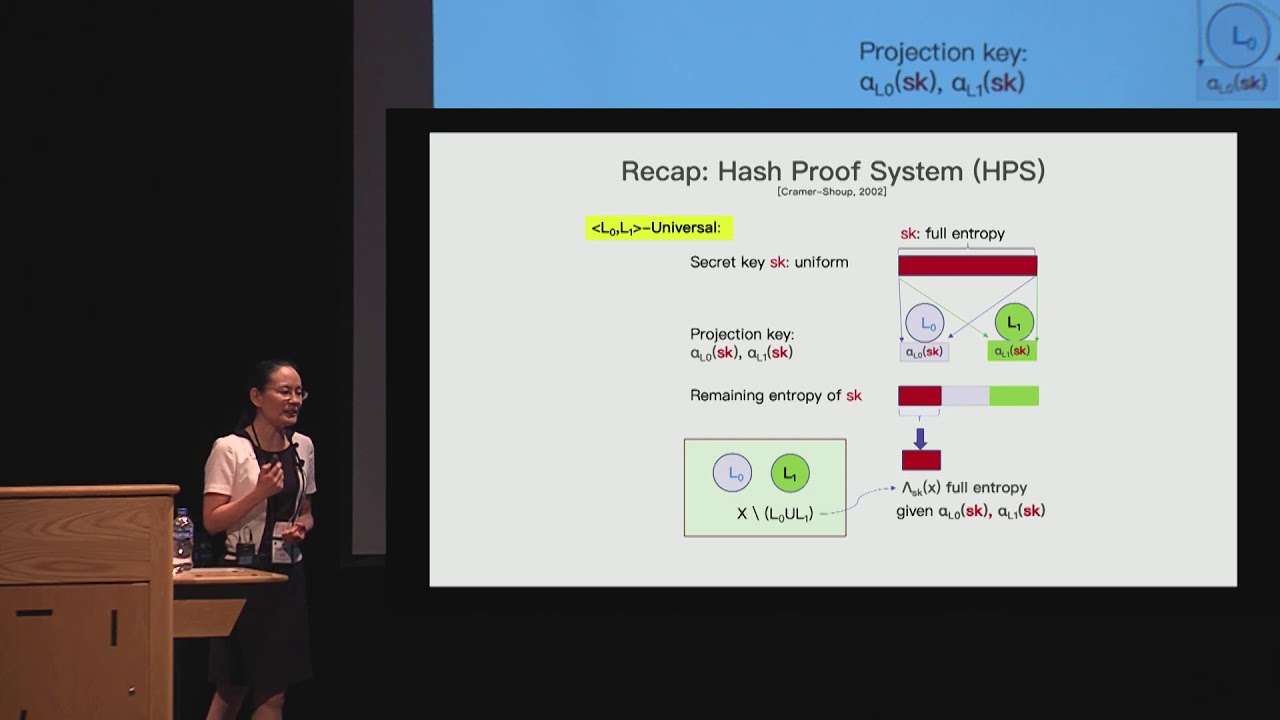Welcome to the resource topic for 2019/512
Title:
Tight Leakage-Resilient CCA-Security from Quasi-Adaptive Hash Proof System
Authors: Shuai Han, Shengli Liu, Lin Lyu, Dawu Gu
Abstract:We propose the concept of quasi-adaptive hash proof system (QAHPS), where the projection key is allowed to depend on the specific language for which hash values are computed. We formalize leakage-resilient(LR)-ardency for QAHPS by defining two statistical properties, including LR-<L_0,L_1>-universal and LR-<L_0,L_1>-key-switching. We provide a generic approach to tightly leakage-resilient CCA (LR-CCA) secure public-key encryption (PKE) from LR-ardent QAHPS. Our approach is reminiscent of the seminal work of Cramer and Shoup (Eurocrypt’02), and employ three QAHPS schemes, one for generating a uniform string to hide the plaintext, and the other two for proving the well-formedness of the ciphertext. The LR-ardency of QAHPS makes possible the tight LR-CCA security. We give instantiations based on the standard k-Linear (k-LIN) assumptions over asymmetric and symmetric pairing groups, respectively, and obtain fully compact PKE with tight LR-CCA security. The security loss is O(log Q_e) where Q_e denotes the number of encryption queries. Specifically, our tightly LR-CCA secure PKE instantiation from SXDH has only 4 group elements in the public key and 7 group elements in the ciphertext, thus is the most efficient one.
ePrint: https://eprint.iacr.org/2019/512
Talk: https://www.youtube.com/watch?v=YAnStJnPppE
See all topics related to this paper.
Feel free to post resources that are related to this paper below.
Example resources include: implementations, explanation materials, talks, slides, links to previous discussions on other websites.
For more information, see the rules for Resource Topics .
